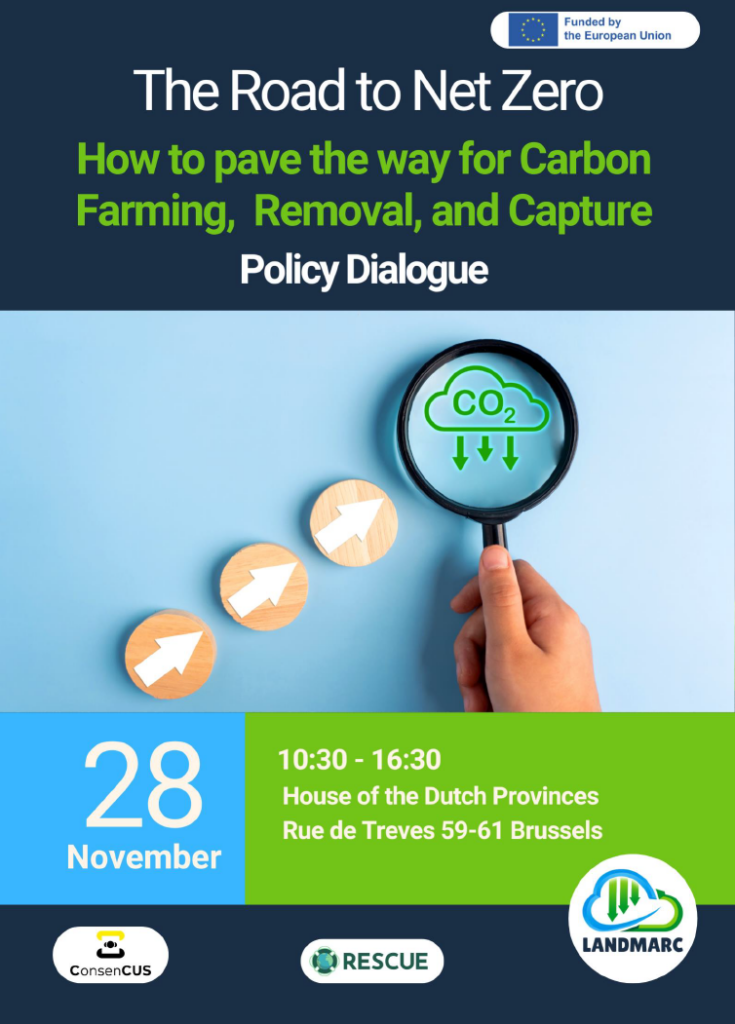Advancing Climate Innovation with SummarAIser for Knowledge Management In the face of an accelerating climate crisis, the ability to harness and share research effectively is critical to fostering impactful solutions. […]
Europe
LANDMARC’s final policy event is taking place in Brussels on 28 November 2024. The event will focus on the policy implications of Carbon Farming (CF), Carbon Capture and Storage/Utilization (CCS/CCU) and Carbon Dioxide Removal (CDR) technologies.
The study focuses on the planning phase of nature-based solutions in cities, in which trade-offs have to be made between different options, such as the design, effectiveness, financial contributions from residents or participatory options. Based on the UPSURGE survey and choice experiment, the aim is to assist public participation processes in various countries, help planning teams define priorities and design governance measures which ensure long-term dedication to development plans.
The UPSURGE project, led by BURST, focuses on urban Nature Based Solutions (NBS) for biodiversity and climate change. BeeOdiversity, a key partner, introduces the BeeOmonitoring tool, utilizing bees to gather environmental data. This innovative approach requires minimal effort from beekeepers and facilitates collaboration via an online dashboard. Past projects in Belgium show promising results in biodiversity and pollution reduction. Dr. Nguyen’s vision emphasizes integrating economic, environmental, and social aspects for sustainable change, aligning with NBS.
Privatized fishery management schemes, alongside other cultural and social changes, have led to a high average age in some fisheries, where youth and newcomers are not meaningfully present in the industry. This research explored the current and future opportunities and constraints for youth and newcomers in Icelandic fisheries, which are managed by an Individual Transferable Quota system. Data were collected through participant observation and 25 semi-structured interviews with key individuals in fisheries.
Atlantic salmon fishing in northern Fennoscandia is part of controversial ecological, sociocultural, legal, and political questions. This paper presents a study of landscape justice as perceived by stakeholders who practice, manage, and govern traditional, household, and recreational salmon fishing on northern Finland’s border rivers, Tornio (Torne) and Teno (Tana).
This chapter addresses what theories of justice may help further our understanding of injustices in the Arctic. The purpose is to critically discuss the baseline for a Forstian transnational theory of justice and its applicability to the Arctic, primarily the Arctic Council.
The Arctic is a political landscape in development, and it is subject to multiple and often competing claims of sovereignty. Although situated at the margins of territorial governance of the Arctic states until recent decades, the region has experienced rapid transformations, not least in its governance arrangements.
This chapter considers what might be deemed relevant normative standards when taking responsibility for the effects of rising global temperatures on the territories and communities of the Arctic. Are globally produced harms chiefly the responsibility of territory-specific communities in terms of their dire effects, as is often assumed?
Corporate social responsibility (CSR) is the primary mechanism through which private businesses seek to establish their sustainability credentials (Rendtorff, 2019; Saeed et al, 2021). It is supplemented recently with environmental, social and governance investment frameworks (Pedersen et al, 2021).

